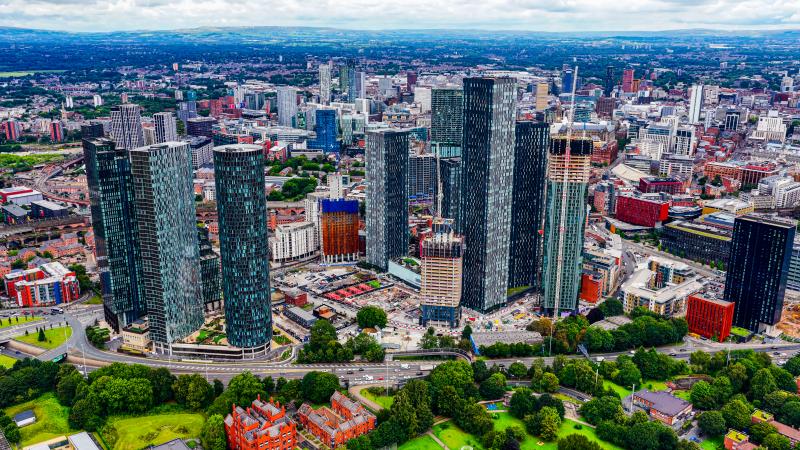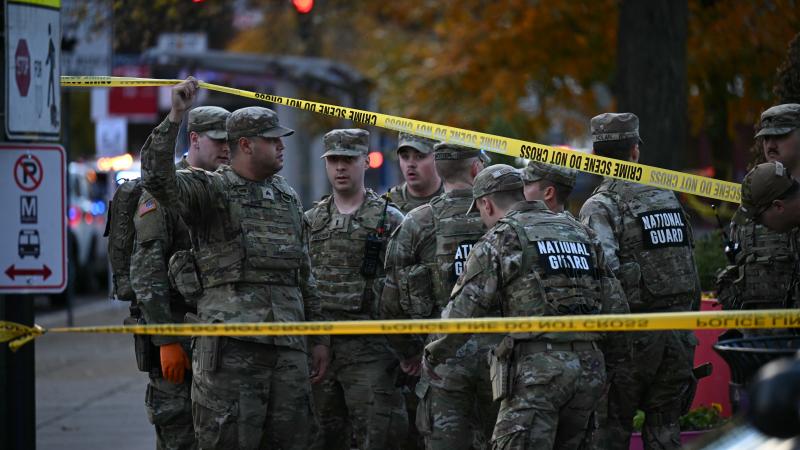Five countries where terrorists, terror-related groups flourished in 2022
Despite international sanctions, the Islamic Republic of Iran is still the No. 1 terrorist-sponsoring state in the Middle East and abroad.
Terrorist or terror related groups have flourished this year in five countries including the well known situation in Afghanistan where the Taliban took over after the U.S withdrew its troops in August 2021.
While the Afghan Taliban is not on a U.S. terror watch list, some members of the ruling government are reportedly part of a Pakistan-connected faction that is on a U.S. intelligence community watch list.
Following the withdrawal of all American personnel in August 2021, many warned that radical Islamic terrorist groups like the Taliban and Al Qaeda would retake Afghanistan and establish an Islamic government against the United States, which resulted in a Biden administration.
"The United States is committed to using its full set of counterterrorism tools to counter the threat posed by terrorist groups operating in Afghanistan, including … Tehrik-e Taliban Pakistan (TTP), as part of our relentless efforts to ensure that terrorists do not use Afghanistan as a platform for international terrorism," Secretary of State Antony Blinken said earlier this month.
Still, after the Taliban took over and established its new Islamic government, the regime began reversing rights for men and women, taking over American military equipment left behind and reportedly strengthening their terrorist fighters.
Information and photographs in the country’s capital city of Kabul have shown the Taliban transporting U.S. military equipment to the terrorist-based Islamic Republic of Iran, according to the Foreign Desk.
In addition, the presence, then killing this year of senior Al Qaeda leader Ayman al-Zawahiri in Kabul in a U.S. drone strike validated concerns that the group – which mastermind and carried out the 9/11 attacks – has returned to Afghanistan.
According to experts, by allowing Al Qaeda safe refuge in Afghanistan, the terrorist group can train recruits for their terrorist organization and plan terrorist operations against American interests.
Following the 2011 civil war in Syria, the country has had various Islamic terrorist groups outside foreign countries leading to the nation’s fragmentation.
According to a recent report from the military new group Task & Purpose, the Islamic State (ISIS) has consolidated its control in different parts of the country, detaining ordinary civilians and children in cities like Al-Hasakah.
And U.S. Central Command (CENTCOM), says about 25,000 children are held in the Kurdish-run Al-Hol detention refugee camp in Syria, a prime target for ISIS radicalization.
From August to September of this year, American-backed Syrian forces arrested 300 suspected ISIS fighters inside the al-Hol camp and captured 55 pounds of explosives and 25 hand grenades.
While ISIS has lost the last bit of territory it controlled four years ago, the group continues to fight, launching 74 attacks in Syria from July to September. In Damascus, the government of Bashar al Asad has allowed Iran’s Revolutionary Guards Corps (IRGC) to flourish, training future fighters and transporting weaponry from Damascus to Lebanon and the Gaza Strip against Israel.
In the years-long civil war, Assad's forces launched a chemical attack killing 1,100 to 1,500 civilians, and the United Nation has accused Assad of war crimes.
Syria is one of four countries of the State Department’s state-sponsored terrorism watch list. The other three are Cuba, Iran and North Korea.
According to reports by CENTCOM, there are roughly 10,000 suspected ISIS fighters in Iraq, with elements of the group conducting attacks against American troops and Iraqi civilians.
Following the parliamentary elections in Iraq this year, various Sunni and Shiite terrorist groups have grown in strengthening, radicalizing, and training new followers to join their cause against American influence in Iraq and throughout the Middle East, the Foreign Desk also reports.
Countries such as the Islamic Republic of Iran have also had their hands in Iraq, increasing the number of weapons, ammunition, and training for various Shiite-based terrorist groups like Khatib Hezbollah.
In Baghdad, officials from the IRGC have helped provide military assistance like rockets, guns, ammunition, missiles, mortars and intelligence to terrorist groups and smuggling resources throughout the Middle East.
With their resources, many of these groups have spread their tentacles in such places as Saudi Arabia, Yemen, Syria and Lebanon, attacking Arab civilians and American-backed regional allies.
According to CENTCOM officials, Iraqi security forces are still working to enhance their own capabilities needed to defeat ISIS and other terrorist groups, including intelligence, surveillance, reconnaissance and intelligence fusion.
Despite international sanctions, the Islamic Republic of Iran is still the No. 1 terrorist-sponsoring state in the Middle East and abroad.
Under the leadership of Iranian Supreme Leader Ayatollah Ali Khamenei and Iranian President Ebrahim Raisi, the regime has funneled resources to the IRGC, building up new military drone and naval capabilities inside and outside Tehran.
Even as the regime in Tehran faces protests, the Ayatollahs continue to funnel resources to the IRGC and its terrorist proxies in Lebanon, Syria, Iraq, Yemen and Gaza – strengthening its tentacles against American, Israeli, and regional forces.
Recently, a pro-Islamic government media outlet bragged about the regime's "integrated missile network" and how it has armed terrorist groups in Gaza, the West Bank, Lebanon and Yemen to attack Israeli and Arab civilians, the Foreign Desk also reports.
In 2022, the Lebanon Shiite Terrorist group Hezbollah received hundreds of new military and economic resources from the Islamic Republic of Iran in its operations against the Jewish state of Israel.
Throughout the year, Hezbollah, under Secretary-General Hassan Nasrallah, has helped train Palestinian terrorist groups like Hamas to Palestinian Islamic Jihad to attack Israeli civilians and launch rocket attacks against Israel and its military.
The terrorist group has been and continues to be active in southern Lebanon while also having a presence in Syria along with IRGC officials and troops.
After the U.S.-brokered a maritime agreement between Israel and Lebanon, Hezbollah agreed to the deal, with many experts saying it allowed the terrorist entity access to energy resources.
With protests ongoing in Iran, reports show that Hezbollah has sent its forces to help crack down on the protesters and secure the regime’s stability.
In Latin America, leftist candidates in Colombia and Brazil went on to win, strengthening Hezbollah’s presence in Latin America and its activities, like drug and weapon smuggling, the Foreign Desk also reports.















